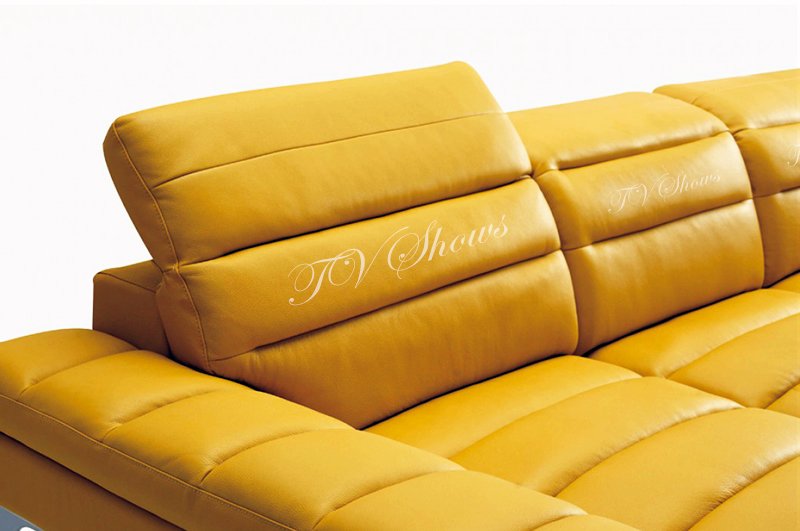Welcome to Screen Week! Join us as we explore the films, TV shows, and video games that kept us staring at screens. More from this series
10
The Americans
Created by: Joel Fields & Joe Wiseberg
[FX]

The Americans was such a carefully drawn and richly characterized show, though in its more masochistic stretches, it seemed to go out of its way to force Philip (Matthew Rhys) and Elizabeth (Keri Russell) into committing horrible acts they could scarcely defend. If the show sometimes felt like the Breaking Bad of deeply internal moral rot, its final season was an overdue and (it’s strange to say) immensely satisfying reckoning with the show’s many literal and figurative poisonings: Philip two-stepped with the longtime employee he’d later lay off thanks to failures that were either his or those of American capitalism; Paige (Holly Taylor), in the apex of the show’s stellar finale, determined the least bad of so many awful futures; Stan (Noah Emmerich) had to accept he had no friends and perhaps no real lover. And once-loyal Soviet servant Elizabeth smoked endlessly, murdered with abandon, and lost her will while learning (with the help of the great Miriam Shor’s dying artist) to see, and then deciding she didn’t want to. The show’s argument — that marriage, family, home, patriotism, and art are not bedrock properties but relationships of trust that can be challenged, negotiated, and broken — will endure.
09
Joe Pera Talks With You
Created by: Joe Pera
[Adult Swim]

Too pure for these times, if more raw than meets the eye, we finally got a full nine-episode (one could say eight and an epilogue) season of something from human anti-depressant Joe Pera. It was certain that he could’ve done anything and it would’ve been great, and he pretty much followed his bliss, episode to episode. A tour of the cherished spots in his small Michigan town. An odyssey through the discovery and romance of a new favorite song. A new clutch of talks devoted to getting you to sleep. But there was also a heartbreaking anti-romance with the “solid” Sarah (a charming, intense Jo Firestone) and encounters with the newly arrived, rowdy Melsky clan (led with sloppy fervor by Conner O’Malley as Mike). As much as the twinkling, melancholic piano score and dulcet tones of our host created a sort of cocoon against the hard-barking realities of our world (or other shows, even), the writers ultimately allowed that bubble to be burst. But this felt less like an offset to what could be called precious and more a reaffirmation of how properly rotten it’d be without people like Joe in the world.
08
Wild Wild Country
Created by: Maclain Way & Chapman Way
[Netflix]
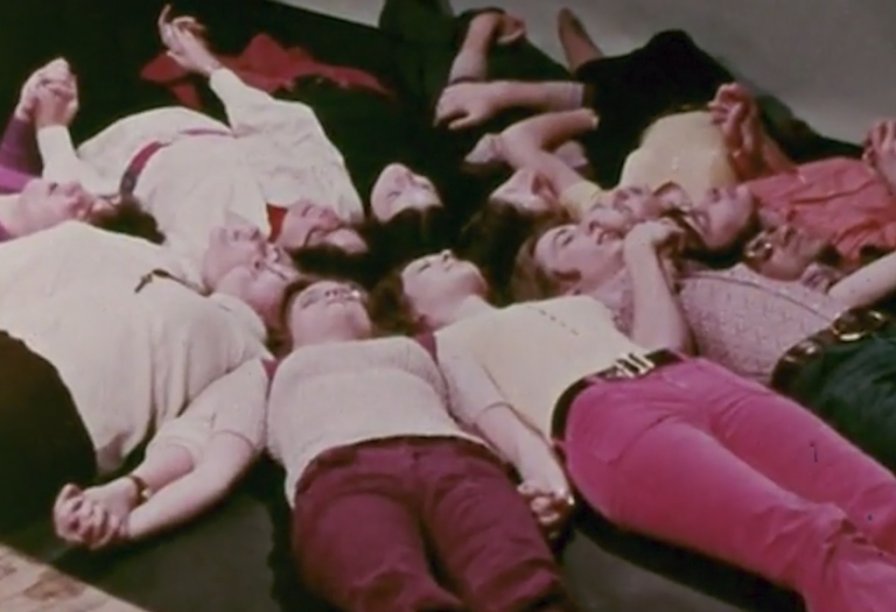
There is a happy medium between a feature-length documentary and Ken Burns’s deep dives, and it found its stride this year with Wild Wild Country, a story that would have felt rushed and incomplete even within a three-hour block. The eccentric and morbid intrigue of a cult you’ve never heard of may get you to flip it on, but you’ll stay for the Way brothers’ deft swinging of moral alignment. Both sides suggest sympathy. You’ll truly believe that Rajneesh’s disciples wanted to create a better world for themselves and others (they built an entire city and employed homeless people), but their lifestyle directly clashed with the townspeople around them, stand-ins for middle America who just want to live out their mature years in peace. Escalating into eventual violence and egregious crimes, Wild Wild Country illustrated America’s longstanding divisions at their most absurd. And you may never erase the Bhagwan’s blank stare from your brain.
07
Sharp Objects
Created by: Marti Noxon
[HBO]

While The Deuce walked us down a knife edge where people nonetheless laughed and loafed and blathered and existed, this one poured us into the heady realm of illusion and rumor in a whispering bit of chasm called Wind Gap. Despite the forensic gnarliness common to Flynn’s stories, the more palpable moments of unease here came from personal and ritual motions (aided here by flashing slivers of A/V sensations from our protagonist’s past) that seem to serve only the moment. The emotional heft of the story in these wafting, unwieldy-worlds-in-passing seem more about Camille (Amy Adams) and her cutting than all the Munchausen-by-proxy stuff, which came off more “freaky” in the traditional thriller sense. Camille was like Jennifer Jason Leigh in Delores Claiborne, tossed on the seas of happenstance into an ugly past and finding her sea legs by unreliable instinct. All the murder, pulled teeth, and false suspects seemed like background. We were right in there with her — numb, defiant, absurdly nostalgic, and cut. Campy Patricia Clarkson (gotta love it, really) and the Carrie-style “Don’t tell mama” ending aside, Adams and co. provided one of the most eerily uncanny takes on going home again in a good long while.
06
The Deuce
Created by: George Pelecanos & David Simon
[HBO]
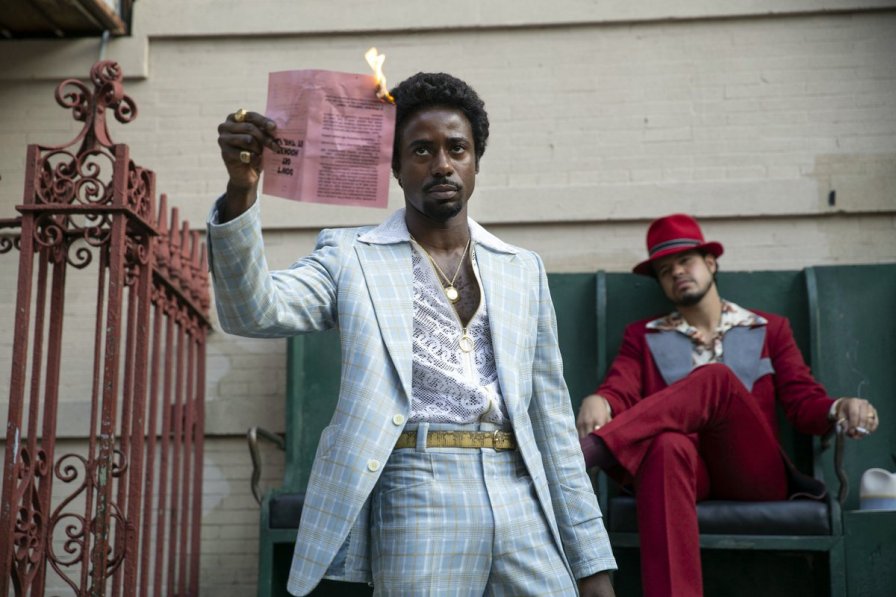
Let’s see… So Candy scraped together a XXX submarket, C.C. failed to check himself, Frankie got in dutch with the wrong crew — or was that the other Franco? As ever, it felt impossible to keep it all straight. If there’s an embarrassment of content now, a given David Simon series is overflowingly content rich on its own. The character threads tangled quick, to the point where the looming violence seemed like a trick to get us to care about people just living their lives — even shitty people, like the pimps, who, despite once again having their lore somewhat gratified, were also shown as insecure, needy users. Big things happened, but as usual, Simon wasted no time on conventional reactionary beats to pad these happenings out. Initially, this tendency may have taken away from the resonance of a given event, but Simon’s shows are built to last, and their rewatchability bears out his fleet-footed approach. With The Deuce, he continued to bring us compassionate stories that encouraged us to pay closer attention. Two seasons into this period fare-redeeming entry and that scrutiny continues to help us to see even the most rote of our ethereal on-screen archetypes as people again.
05
The Good Place
Created by: Michael Shur
[NBC]
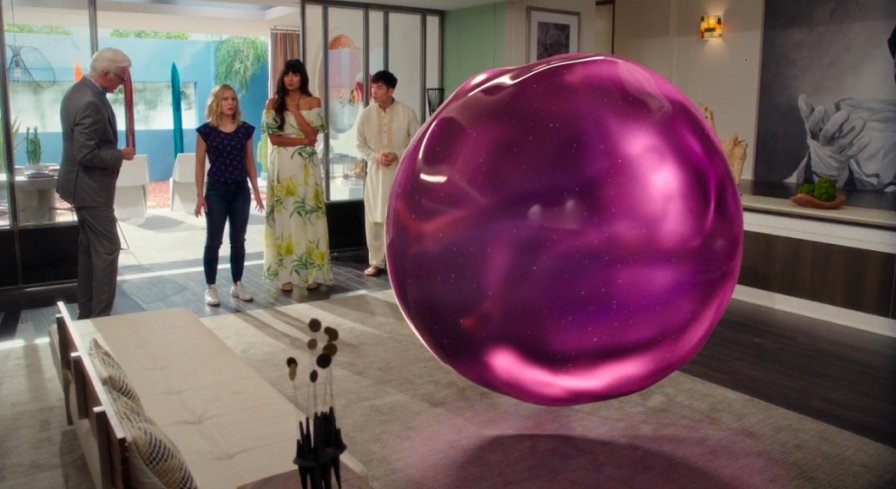
You are thinking about how to be good — maybe you were always encumbered by this overwhelming sourness. You’re not sure, thinking back to when it might have been different. Now, sharing a laugh only communicates disappointment, the exhalation of interstitial emptiness. Having caused harm, the constant ache of a curse that you summoned. Hope of changing or hope of having misremembered or misrepresented or been misrepresented. How long ago was it when there was black and white, good and bad — was it all just a reflection of naïvety? Childlike longing for a semblance of justice? So, you bound into the accountant’s office and you demand to check the calculations. Obstinate and consumed, you prattle on about algorithms, misplaced ones not yet carried. Breathe in. Longing for the order that put you here but for it to be rearranged. Ted Danson’s smiling face. Have a laugh, just this once.
04
Killing Eve
Created by: Phoebe Waller-Bridge
[BBC America]

Killing Eve was a glitter explosion in a Scandi noir factory, a confection in which Gossip Girl meets le Carré, everything and the kitchen sink drama. It took the spy-vs-spy crime format and twisted it into an absurdity that nonetheless wrung our guts out. Sandra Oh’s Eve is a self-destructive workaholic who won’t be romantically tied down, but in a whole different way than the character of that description so wearily familiar to the genre (even taking into account that the cliché these days is not limited to the male gumshoe). When Eve is set on the trail of manic pixie psycho-for-hire Villanelle (Jodie Comer), we are privy to the blossoming of a bad romance that will never quite declare itself as such, with attendant human fallout that just won’t quit. The plot (and often the action) was ludicrous, but it was the marrying of that ridiculousness with perfectly observed everyday details (accompanied by a deep emotional resonance) that gave Killing Eve its freshness. That machinery in turn was driven by a Bechdel dream cast of strong yet all-too-human women whose attempts to shape the world to their will play out in Eve and Villanelle’s mutual pursuit of the most dangerous game — each other.
03
Terrace House: Opening New Doors
[Fuji TV/Netflix]
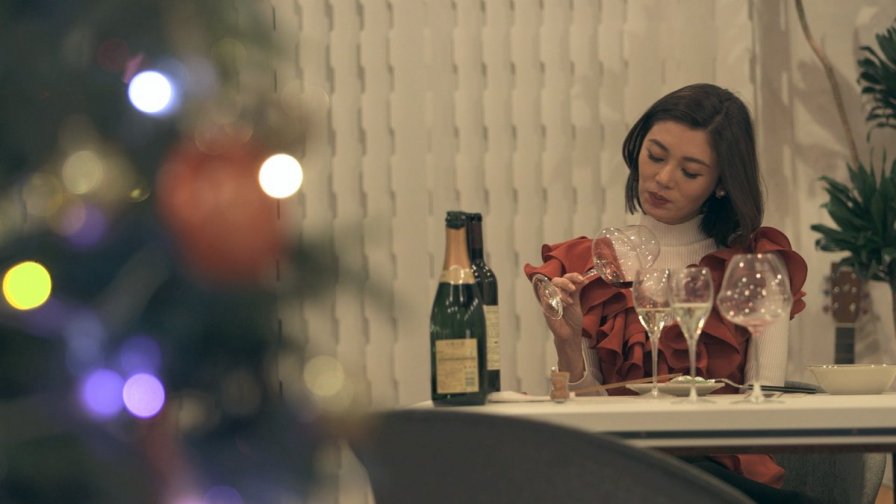
With Opening New Doors, Fuji TV’s Terrace House reached new heights of strangely calming interpersonal drama. Set in the snowy countryside town of Karuizawa, the strangers assembled for this series reflected off one another in nail-biting ways, whether it was in Taka’s deluded pursuit of the disinterested and much-younger Ami, Yui’s territorial power plays against the lovesick Mayu, or Tsubasa’s earnest tomboy flirtation with the half-American pretty boy Shion. That all of these ultimately run-of-the-mill conflicts were so easy to gawk at (with the help of Terrace House’s endlessly lovable group of commentators) only spoke to the show’s deep understanding of tension and release — the cadence of going from a brisk walk outside in the January snow to sitting around a dinner table while your roommates air out their dirty laundry. It all just felt so real, more so than possibly any other reality show to ever come before it, each conflict a product of months and months of shared history accrued from sharing a roof with another person. Opening New Doors was a symphony of slight undermining and slow, simmering crushes, all told with the steady grace of a natural ecosystem evolving in real time.
02
Atlanta: Robbin’ Season
Created by: Donald Glover
[FX]

Maybe one too many things have gone wrong for satire to feel like anything but pandering or escapism. It’s hard to believe that we’ll get the last laugh. Well, this is America: Atlanta wasn’t laughing but laughed anyway, knew power wasn’t listening, and so told truth about itself: absolute, enmeshing, weird. It was Robbin’ Season, and Hiro Murai brought the kaleidoscopic focus of a well-curated anthology to the country’s cultural ground zero. One episode of pure slapstick to offset one episode of flashback parable. Thanks to its music video director and prize-eyed writers room, the show was allergic to the middling tones and telegraphed morals of Netflix-prestige. Instead, we witnessed a brilliant and nightmarish comedy of human error. A golden gun and a haunted house, real tender and fake FUBU, Aubrey Graham and an alligator. Earn, Van, Al, Darius, Tracy. However far-fetched their circumstances, the show’s Atlantans remained frustratingly grounded: subject to baffling but well-known machinations of antiblackness, as given to two steps back as one step forward. Or a 40-yard dash against a Falcon at the witching hour. And the ratings this season were down? I don’t care what you think about Donald Glover. This isn’t about him. Sorry to bother you, but it’s about time: the stopwatch of racism and the peculiar standstill of cruel optimism.
01
BoJack Horseman
Created by: Raphael Bob-Waksberg
[Netflix]

All our friends are sad. We stalk through days with lowered backs. We look down for phones and cracks in pavement, watch news cycles in the space between fingers. We worry about those less fortunate than us; we worry we’re the ones people worry about. We are frequently sick. We massage ankles after derelict gym sessions and press temples after we separate. We get back together and throw up and say things like “it’s fine it’s fine I mean it’s not fine but you know it’s fine.” We laugh and gnash and skip and skimp. Frequently, we lie to ourselves.
“We’re all terrible, and we’re all okay.” Our sadness is not the strict privilege of our youth. Our parents are sad. Their parents, ghosts, are sad remembrances that quietly slip away, only to return shrieking when our sleep is least fitful. Sometimes the shrieking and unsleeping smacks of regulation, a fluctuating function of being alive: sadness cannot last. In this glimpse, we are sad, but soon, other oceans of joy and wrath and fear take over. We cry and resolve to wake up feeling better. Sometimes the sadness lurks in our peripheries, never leaving the frame until one day we wake up and it lives on top of us, fingers pressed to our necks. We worry every new sadness could attain this kind of permanent grip.
Every time I recommended BoJack Horseman to friends, this year or any other before, the initial reactions were filtered and focused on sadness. “It makes me so sad!” And even though sometimes I think we press our present feeling into objective artifact/the people in our days, BoJack Horseman has always felt like the perfect wreck to exhume our failures aside. Its first season pushed our sinking aspirations and mounting anxieties into a world half animal, half human, all cartoon agape and desperate to connect. It mediated the treachery of attention, meditated on want and loss, and it promised, implausibly, that “it gets easier. Every day it gets a little easier.” It submerged us into the trench of the incommunicable, then shoved us aboard boats in deserts. We winced, and it did not feel easier. It leveled with us: “You gotta do it every day. That’s the hard part.” We recoiled, swerved the yellow of our car from under our fingertips as if something grander could take hold of us for us.
It didn’t. How could it? Last season, BoJack and Diane and Todd and Princess Carolyn and Mr. Peanutbutter, these likeliest avatars of our saddest grandest moments, were subject to more excision than it looked like they could take. Marriages and houses collapsed. Babies were imagined, abandoned. Tracks of mothers emerged, pointing to pasts as if the gnarled things snaking from out of there were answers. Bodies were poisoned and realities fissured, and a girl who just wanted to know something stable about her self disappeared under the decrepit weight of sick memory. Somehow, again, it got better. “Above all else, the show has to keep going.”
“There’s always more show.” Does it get better? A show like BoJack Horseman could begin to double-down on its self. It wouldn’t be difficult to offer audiences similar highs from increasingly processed versions of sadness and hope, to lean into exploiting its vibrant and volatile characters to elicit the cheapest high of all: escape. Season five, the brutist gnash in an arc of sublimely scorched writing and almost devotional voice-over performance, shot the show into cross-town traffic. It broke its own bones to atomize its body. As always, getting better is the directive. As usual, it’s hard to get better.

Its pacing is careful and caring. BoJack’s shooting a stupidly doomed detective procedural, Philbert. Diane and Mr. Peanutbutter finally end their crutched marriage. She runs to Vietnam to keep from breaking, only to find herself directionless in trying to escape into a familial past that’s not truly hers. Mr. Peanutbutter winds in and out of four different Halloween nights with four different failed lovers, each victimized by his inability to admit that refusing to grow and change is its own broken crutch. Todd tears himself between embracing his asexuality and still wanting something to connect to; that the only direction he finds is in working a corporate job feels an unforgivable twist for the sweet soul who brought us Cabracadabra and “Run For Your Life: Escape The Rabid Clown Dentists.” And Princess Carolyn, focused on adopting a baby to the point of disregarding her own needs, finds herself in her old hometown mediating spectral memories of her stifling mother and the lucky break of love she would have had if she hadn’t lost the baby.
The episodes unfold in bold formal leaps: listicle countdowns, Resnais-style cross-cutting between years, seemingly objective narrators revealing unstomachable truths. At the center of the season is the ruined bravura of “Free Churro,” a 25-minute eulogy delivered by BoJack for his mother, Beatrice. It’s the kind of thing you could point to as sad, in the absence of caring, a fractured son tries to piece together his razor of a mother using all the wrong parts. He claims kindness as the only thing he ever wanted but shows Beatrice and the audience only bitterness and calcified despairs. It’s his history, the one we saw in full Technicolor dredge last year, but instead of informing the present, it’s Time’s arrow staking a life in place, refusing to progress. “It’s good to know that there is nobody looking out for me, that there never was, and there never will be,” he concludes, and suddenly, heinously, we realize that BoJack is crashing for real, and we can’t help because he won’t take it.
There has to be a separation between “my mother is dead” and “and everything is worse now.” We can only change one half of that equivocation, but if we refuse to believe in after a now, there’s nothing left. Season five presents BoJack as a firmly devoted servant of his own sadness, entrenched like an infected molar. His addictions unravel him. His reality becomes an opioid fever of Philbert’s moral ambiguities and BoJack’s self-pitying destruction. He does bad things. He leans on his sadness to explain doing the bad things. We don’t think about forgiving him because he doesn’t either.
“Do you think I’m a good person, deep down?” he asked, once. Sometimes we let our natural sadness get in the way of how we rule our worth in the world. Sometimes we let our histories get in the way of diagnosing the sadness that needs atomizing and confronting. Sometimes we worry so much about what we are that we forget what we’re doing. A lifetime ago, across sweaty western earth, before colander schemes and all of our scratched-out memories and Henry Fondle the robo-dildo-CEO, Diane said to BoJack on the roof of his (not Philbert’s, not David Boreanaz’s) home, “That’s the thing — I don’t think I believe in ‘deep down.’ I kind of think all you are is just the things that you do.”
In the nebulous glob of good and evil, somewhere between Nietzsche and my mom (“To be ashamed of one’s immorality — that is a step on the staircase at whose end one is also ashamed of one’s morality”) is what Diane tells BoJack. That she stuck through his and our time to say it is proof that, somewhere, we all deserve someone looking out for us. We are all lucky when we get what we deserve. “There’s no such thing as good guys or bad guys. We’re all just guys, doing good and bad.” Our pasts are unfair and our anxieties unearned. Taking stock of our past sadnesses means nothing if we’re unwilling to take stake in our future ones. BoJack Horseman keeps getting better by breaking its self, turning despair into introspection and finding what it means to have more show in 2018. Invest in conscience and discard self-hate. Take care to face the sadness you can’t shake. Take care of all your friends. We are what we do. Laugh. Rehabilitate.
Welcome to Screen Week! Join us as we explore the films, TV shows, and video games that kept us staring at screens. More from this series
